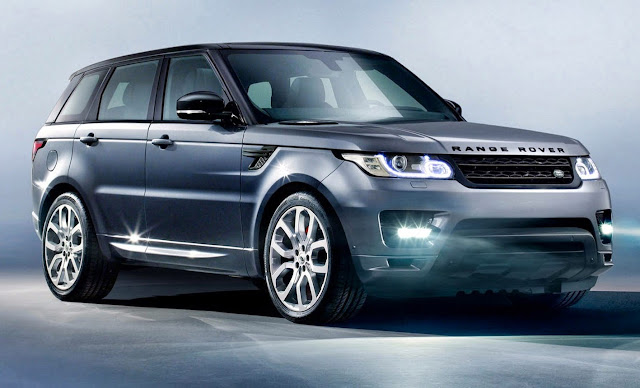2013 Land Rover LR2
There’s something that a little boy and the
Land Rover LR2 have in common: They never met a puddle or hill that they didn’t think had their name written all over or in it. And in most cases they can wear mud pretty well, even if it doesn't seem like their parents want them running through the mucky stuff.
But turning to the LR2, does it duplicate the efforts of its sexier, fashionista brother, the Range Rover Evoque, now that both offer the same more powerful and more fuel efficient four-cylinder turbo engine?
Lining up behind the Evoque A five-passenger crossover with a hint of ruggedness, the 2013 Land Rover LR2 is helping to make the Ford-developed 2.0-liter turbocharged engine one of the most widely used contemporary powerplants in existence. Seen in a variety of applications ranging from the
Ford Fusion to the
Jaguar XF, the 2.0 manages to have just the right amount of testosterone to act like the rest of the folks at Land Rover’s big boy table.
The baby Land Rover’s version makes 240 horsepower at 5,500 rpm and 250 lb-ft of torque at 3,200 rpm. For those keeping track, that’s an increase of 10 ponies and 16 lb-ft, respectively, over the outgoing six-cylinder.
Fuel economy increases to 17/24 mpg, which is a big bump over the old six but still shy of the more svelte Evoque's 20/28 mpg.
The engine is coupled to a six-speed automatic transmission with normal and sport modes plus a manual-style gate. Befitting the Land Rover badge, it is all coupled to a full-time four-wheel drive system with a Haldex rear differential that automatically splits power between the rear wheels. Heavily biased to the front wheels under normal conditions, power nearly instantly transfers rearward when needed.
The LR2’s Terrain Response system remains one of the core features of the entire Land Rover brand, even though this little 'ute does without a two-speed transfer case. Now operated by a button controller on the center console, Terrain Response varies engine, transmission, traction and dynamic stability controls as well as changing settings for general driving, grass/gravel/snow, mud and sandy terrains. And lest anyone suggest otherwise, the LR2 is also equipped with Hill Descent Control for moderated downhill maneuvers.
At first glance
Newly updated, the look remains the same with the addition of updated headlamps, new wheels and other minor trim enhancements. Lovers of a two-box design strategy will not be disappointed. The short front and rear overhangs help to facilitate the angle of attack that the LR2 is capable of while going up or down a hill, and the sealing around the doors help to keep the more liquid of elements at bay. We know they are not the same vehicle, yet still can’t help but see similarities between the LR2 and Ford’s circa 2012 Escape.
Inside the smallest of the Land Rover set, the interior begins to approach the refinement found in the Evoque. A pair of standard sunroofs allows light in, while a new center console features a seven-inch touch screen as well as a Meridian audio system. A rearview camera helps HSE-trim LR2s with hitch-assist for one-person trailer hitching with up to 4,000 lbs. of towing capability. We've never seen an LR2 lug anything, but the Brits enjoy hooking up their “caravans” for weekend outings.
Road warrior Cruising through Mont Tremblant’s frozen tundra proved an exercise in finesse and tiptoeing. For those of us used to dry, well-laid asphalt, prepping for the slush and snow is not a light undertaking. Our LR2 was equipped with enough safety features and nannies to make sure the shiny side stayed up in all but the most extreme cases.
The steering was well-modulated with good road feel. A well-sorted unit, it provided a firm rudder to steer the small SUV over icy patches, which crackled with each gentle rotation of the tire. We found the Terrain Response system just as easy to operate with buttons as with the previous dial. The settings were especially useful when called on to climb a hill, go over moguls, or ford a stream.
The interior was not “church mouse quiet,” which was probably due to the loudish nature of the mud and snow-rated tires. The 2.0-liter engine offered substantial motivation and torque to help it get out of dicey situations, a vast improvement over the old six-cylinder despite the modest power increase. Such was the case when going around a sweeping right-hander, and the tail decides it needs to hang out for just a moment.
An increase in throttle straightened the LR2 out and we were quickly on our way.












































